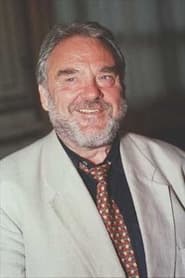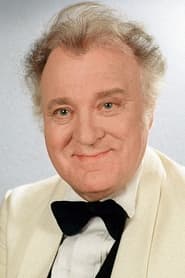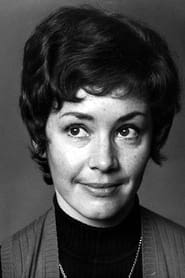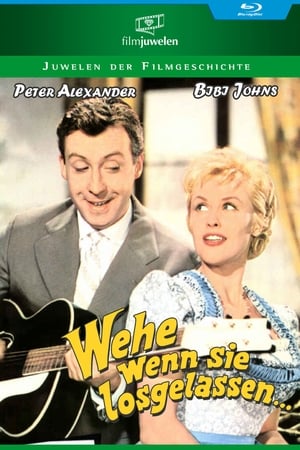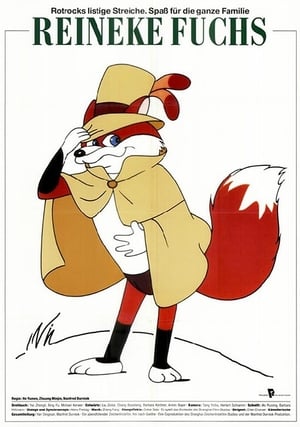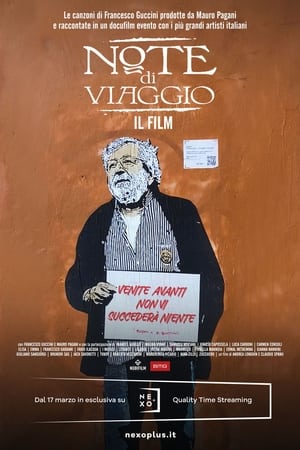Movie: Die Zauberflöte
Top 7 Billed Cast
Königin der Nacht
Papageno
Papagena
Recommendations Movies
Forest(en)
Short film built from photographs, sped up like a traditional stop motion and is meant to be an evocation of the English Eerie and Folk Horror.
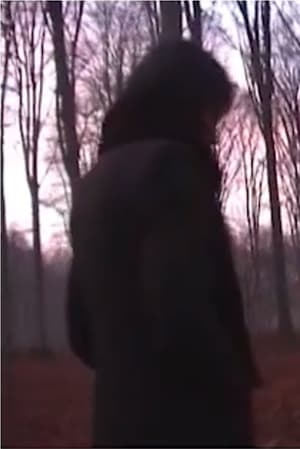 6.0
6.0Forest(en)
Video installation, 2005, at LOKAAL_01 Breda 2007, Burning Marl, curator Frederik Vergaert in Seppenshuis Zoersel, 2005. A woman walking through 3 video images. Three screens display how the day’s light passes by: from the early morning light until late at night. Along with the woman the artist walks through the forest, in the same rhythm, the same pace. Off-screen she looks through the camera, fragmenting time. The age-old androgynous trees are a vertical constant along which the woman moves, as if in an interval between visibility and invisibility, between sound and silence, while the light keeps on evolving metabletically.
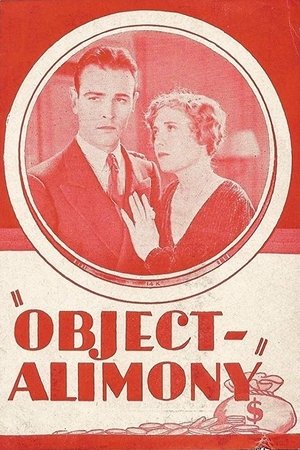 6.0
6.0Object: Alimony(en)
Ruth Butler, a clerk in an emporium, marries Jimmy Rutledge and thereby greatly displeases his mother, the owner of the emporium, because of Ruth's lowly origins. Renaud Graham, one of Mrs. Rutledge's friends, becomes interested in Ruth, forces his way into her apartment, and attempts to make violent love to her. Jimmy walks in on their embrace and, suspecting the worst, leaves Ruth. In the family way, Ruth finds refuge in a boardinghouse where she meets Al Bryant, an aspiring writer. Ruth tells Al her life story, and he makes it into a bestselling novel and then into a play. Jimmy sees the play and comes to his senses, winning Ruth's forgiveness.
 6.0
6.0Beauty Queen Butcher(en)
Phyllis Loden is an overweight shy nerd who is relentlessly picked on by the more popular girls. This year's Slivis Slough Queen Beauty Pageant is fast approaching and Muffy Fairlane is a lock to win. However, Muffy doesn't want any of her friends to come in last so she enters Phyllis in the pageant. The plan works and also provides the girls with some opportunities to embarrass Phyllis in front of the whole school. As if that isn't bad enough Elizabeth McKay thinks she could've won it all if it wasn't for her allergic reaction the Phyllis' cat. So the girls decide to dispose of the feline. That turns out to be the final straw which sends Phyllis on a murderous rampage to eliminate the beauty queens one by one.
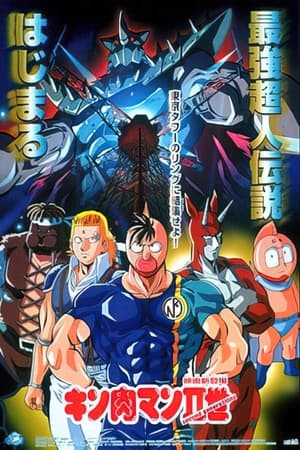 5.5
5.5Kinnikuman II(ja)
While the New Generation Choujins are taking part in Fan Appreciation Day, The Cyborg arrives, takes Meat hostage, and challenges Mantarou to a fight inside Tokyo Tower.
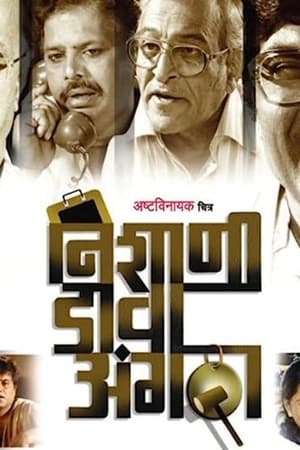 5.5
5.5Left Thumb Signature(mr)
In a village called Savargaon in Maharashtra, six male and female teachers are told to conduct the adult literacy program. This requires extra working hours but they run the program with no result.
 8.0
8.0The Dark Side of the Rainbow(en)
The movie The Wizard of Oz (1939) with the soundtrack replaced by Pink Floyd's album The Dark Side of the Moon (1973); several uncanny moments of synchronisation and a generally darker tone than the original film.
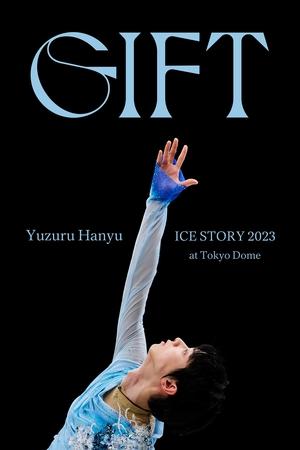 8.6
8.6Yuzuru Hanyu ICE STORY 2023 "GIFT" at Tokyo Dome(ja)
Produced and directed by Yuzuru Hanyu. The first-ever solo ice show at Tokyo Dome "GIFT,” a story that self-portrays Yuzuru Hanyu's life and future on the ice. Featuring MIKIKO as the director. The show will finally open for one night only on February 26, 2023.
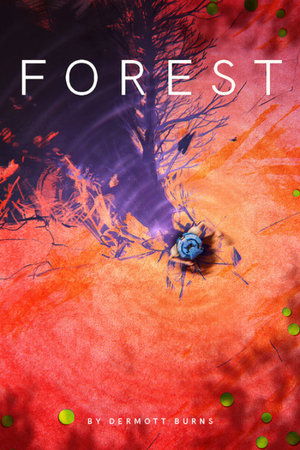 5.8
5.8Forest(en)
An experimental short film rendered using real-time graphics. Through contrasting a vibrant, virtual paradise with a dark reality, the film reflects upon humanity’s ignorance of their destructive nature on earth; the innocence of youth and the indifference of adulthood.
 8.0
8.0On The Go - Repeat Offender(en)
Hip-Hop Culture and Graffiti Video Magazine
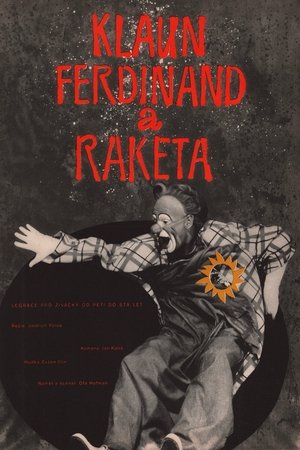 5.0
5.0Clown Ferdinand and the Rocket(cs)
When Clown Ferdinand enters an abandoned city in his wagon he ends up on a space rocket where he meets a robot that can turn invisible. This film reuses sets from Polák's Ikarie XB 1 (1963).
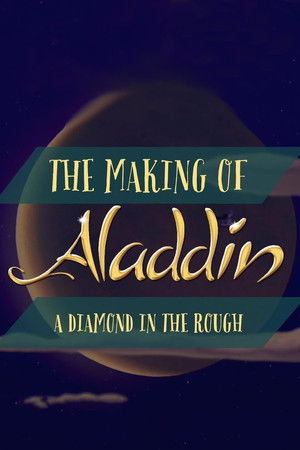 6.0
6.0Diamond in the Rough: The Making of Aladdin(en)
The making of Disney's Aladdin
 5.0
5.0Cornflower(en)
In light of recent events, a young man must take action to protect his little sister from a tragic truth.
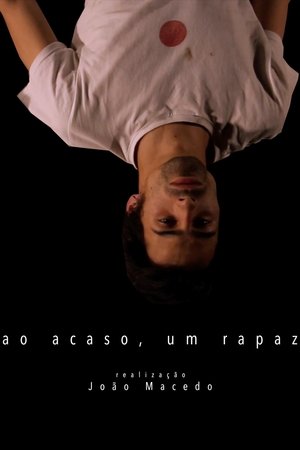 10.0
10.0ao acaso, um rapaz(pt)
A reflexion on the themes of loss and grief, mirrored in a family struck by tragedy.
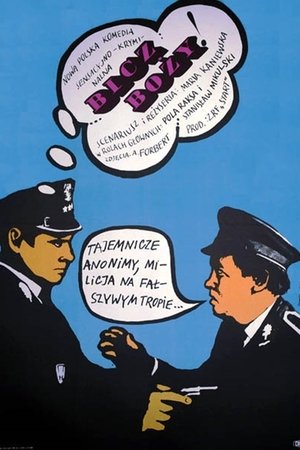 5.5
5.5Bicz Boży(pl)
A young boy sends anonymous threats to various troublemakers around town, hoping that they will report themeselves to the police and grant his older brother, a militia officer a transfer to Warsaw.
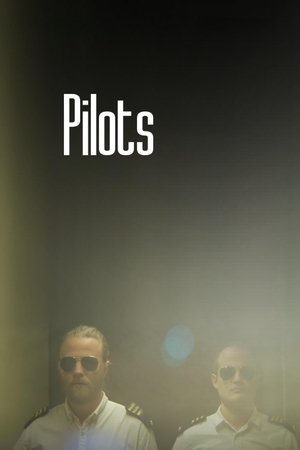 6.0
6.0Pilots(en)
Two Pilots present software at a convention after the tragic death of their friend.
Similar Movies
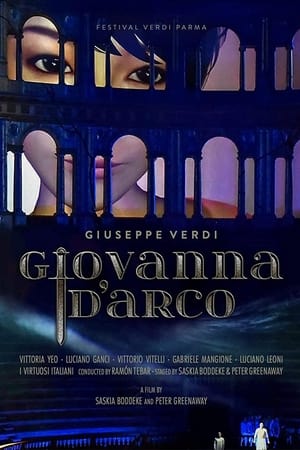 0.0
0.0Giovanna D'Arco(en)
With more than 50 years of experience as film director, Peter Greenaway (Nightwatching, Eisenstein in Guanajuato) combines the worlds of film and opera at the Verdi Festival in Parma, demonstrating what magic those two can do together with an all new approach to Giuseppe Verdi's Giovanna d'Arco, staged and edited by himself and his wife, Saskia Boddeke. The opera's libretto is based on Friedrich Schiller's 'The Maid of Orleans'. It tells the story of the French national hero Jeanne d'Arc, who defends her country against the English troops during the Hundred Years' War. Constantly torn between her humble roots, her love for King Charles VII and her heavenly task to fight for France, she gains eternal glory by giving her life in the final, victorious battle against England.
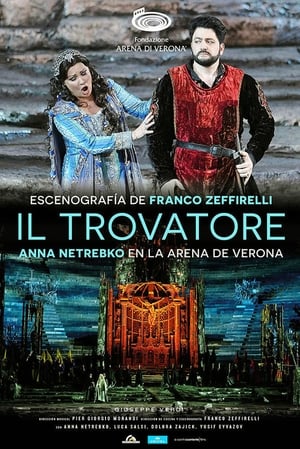 0.0
0.0Arena di Verona: Il Trovatore(it)
It's an event that draws many thousands of music lovers to one of the most beautiful cities in the world every summer: the opera season at the ancient Arena di Verona. The 2,000-year-old roman amphiteatre with its gigantic stage dimensions is one of the largest and best preserved Roman construction of its kind, and with over 22,000 seats it is undoubtedly one of the most spectacular open-air venues of the world! The revered master of opera Franco Zeffirelli, who died shortly before the premiere of Il Trovatore, created a legendary scenery with groups of giant sized armoured knights, a fortress turning into a luminous cathedral, an enormous choir, horses, breathtaking fights: “his perhaps best arena production” (Opernglas). It brings Anna Netrebko to the Arena of Verona where she is giving her much-anticipated debut in one of Giuseppe Verdi’s most popular operas.
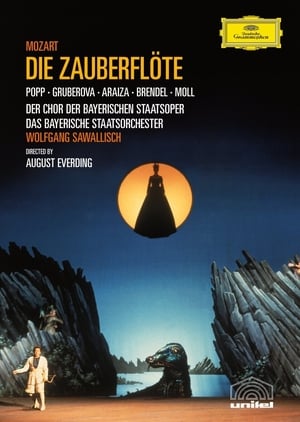 0.0
0.0The Magic Flute(de)
The Queen of the Night enlists a handsome prince named Tamino to rescue her beautiful kidnapped daughter, Princess Pamina. Aided by the lovelorn bird hunter Papageno and a magical flute that holds the power to change the hearts of men, young Tamino embarks on a quest for true love, leading to the evil Sarastro's temple where Pamina is held captive.
Rigoletto(en)
Rigoletto is an opera in three acts by Giuseppe Verdi. The Italian libretto was written by Francesco Maria Piave based on the play Le roi s'amuse by Victor Hugo. Despite serious initial problems with the Austrian censors who had control over northern Italian theatres at the time, the opera had a triumphant premiere at La Fenice in Venice on 11 March 1851. This 1994 recording, directed by Riccardo Muti, stars Roberto Alagna, Renato Bruson and Andrea Rost.
 7.5
7.5Hannah and Her Sisters(en)
Between two Thanksgivings, Hannah's husband falls in love with her sister Lee, while her hypochondriac ex-husband rekindles his relationship with her sister Holly.
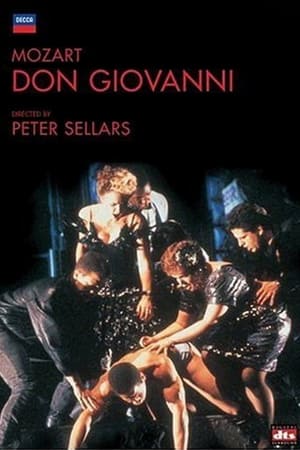 7.0
7.0Don Giovanni(it)
This production was originally staged for the Pepsico Summerfare Festival, The International Performing Arts Festival of the State University of New York at Purchase. Leaving the lyrics in their original Italian, acclaimed American director Peter Sellars transports Wolfgang Amadeus Mozart's "Don Giovanni" to a modern-day metropolis, nestling the opera's beloved characters among the brownstones of New York City's Harlem. Sellars's contemporary retelling of a classic musical tale is one of three performances in a Mozart series that also includes "Le Nozze di Figaro" and "'Così Fan Tutte."
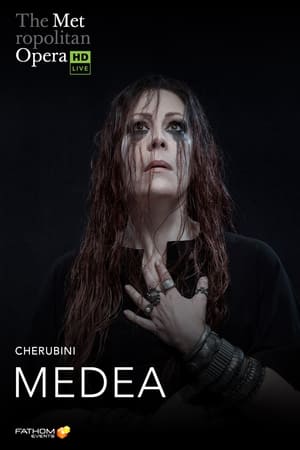 0.0
0.0The Metropolitan Opera: Medea(it)
Having triumphed at the Met in some of the repertory’s fiercest soprano roles, Sondra Radvanovsky stars as the mythic sorceress who will stop at nothing in her quest for vengeance. Joining Radvanovsky in the Met-premiere production of Cherubini’s rarely performed masterpiece is tenor Matthew Polenzani as Medea’s Argonaut husband, Giasone; soprano Janai Brugger as her rival for his love, Glauce; bass Michele Pertusi as Glauce’s father, Creonte, the King of Corinth; and mezzo-soprano Ekaterina Gubanova as Medea’s confidante, Neris. Carlo Rizzi conducts.
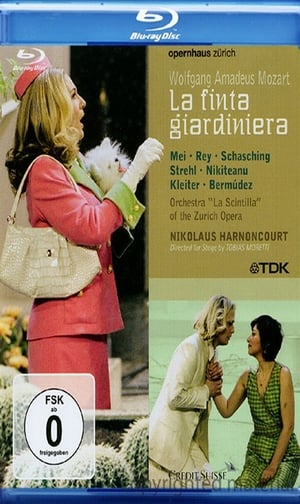 0.0
0.0La Finta Giardiniera(it)
The Zurich Opera gathered a superb cast for this production: Italian soprano Eva Mei sings the Countess Violante, known as Sandrina, the feigned gardener of the title. Spanish soprano Isabel Rey is her opponent Arminda, and Arminda's former lover, the melancholy Cavaliere Ramiro, is sung by Romanian mezzo Liliana Nikiteanu. Moretti's staging presents the action in a modern villa in a hierarchical world of the rich and famous.
 0.0
0.0Puccini: La bohème(it)
"La Bohème" is one of Giacomo Puccini's most popular and timeless works and the second-most performed opera at New York's Metropolitan Opera. This production, directed by the legendary Franco Zeffirelli, features José Carreras, Teresa Stratas, Renata Scotto and Richard Stilwell. The opera is replete with extraordinary visual beauty as it presents the tragic story of young bohemians struggling to make it in the world.
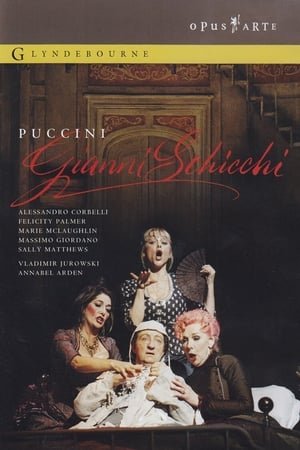 0.0
0.0Puccini: Gianni Schicchi(it)
Opera in one act, libretto by G. Forzano based on Dante's Divine Comedy. Third part of his opera Triptych. The plot is based on canto XXX of "Inferno" from "The Divine Comedy", which are dedicated to the rogue and deceiver Gianni Schicchi, who was punished for his sins: he impersonated a dying rich man in order to make a forged will on his behalf. Gianni Schicchi is Puccini's only comic opera, a brilliant example of a modern opera buffa based on the tradition of Verdi's Falstaff. The most expressive recitative, bubbling melody, sharp character, impetuous tempo distinguish her music. Recorded live at Glyndebourne Opera House, Sussex, UK on 11 July 2004.
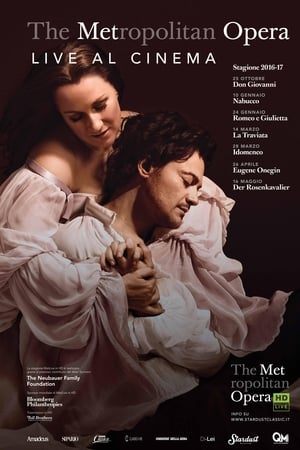 8.0
8.0The Metropolitan Opera: Roméo et Juliette(fr)
Diana Damrau and Vittorio Grigolo are opera’s classic lovers in Gounod’s lush Shakespeare adaptation. Director Bartlett Sher’s “brilliant and inspired new production … is a revelation” (Huffington Post), and has already won acclaim for its vivid 18th-century milieu and stunning costumes during runs at Salzburg and La Scala. Emmanuel Villaume conducts the sumptuous score.
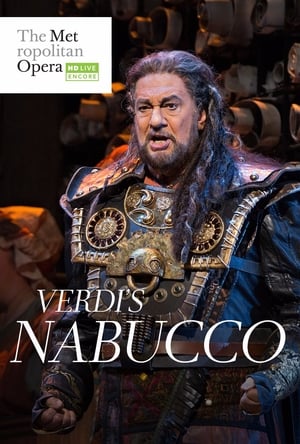 0.0
0.0Verdi: Nabucco(it)
The legendary Plácido Domingo brings another new baritone role to the Met under the baton of his longtime collaborator James Levine. Liudmyla Monastyrska is Abigaille, the warrior woman determined to rule empires, and Jamie Barton is the heroic Fenena. Dmitri Belosselskiy is the stentorian voice of the oppressed Hebrew people.
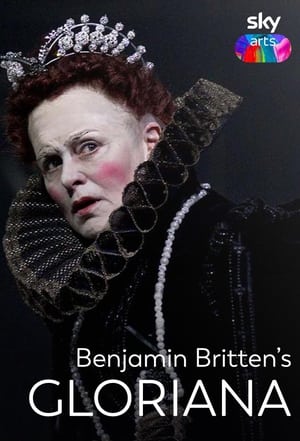 0.0
0.0Gloriana(en)
Performed at Madrid's historic Teatro Real in 2018, Ivor Bolton conducts Benjamin Britten's opera based on Lytton Strachey's 1928 Elizabeth and Essex: A Tragic History. In her repeated clashes with the Earl of Essex-a longtime favorite of the queen who was ultimately put to death for treason-Elizabeth I is depicted as flawed and vain, human and sympathetic.
 0.0
0.0Così fan tutte(en)
Semyon Bychkov conducts a cast of young, up-and-coming talent including American soprano Corinne Winters in a new production of Mozart’s opera on the nature of love.
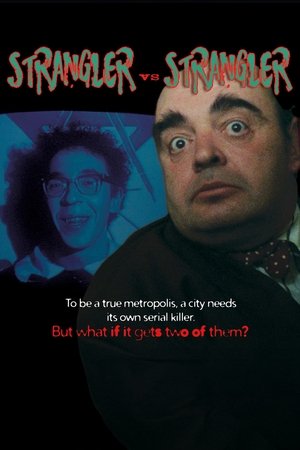 6.8
6.8Strangler vs Strangler(sh)
When it comes to crime, Belgrade is same as any other modern metropolis, except for having its own serial killers. That blank is filled when a flower salesman begins strangling women. A popular, but very disturbed rock star soon becomes telepathically connected with the killer.
 9.0
9.0Ermione(it)
Recorded at the Glyndebourne Festival Opera in 1995, this acclaimed presentation of composer Gioachino Rossini's epic opus ERMIONE is based on Jean Racine's play "Andromache." Set in Troy after the city fell to the Greeks, the production recounts the rancorous battle between widow Andromache and Helen of Troy's green-eyed daughter, Ermione for the love of Pyrrhus
Zaryadye Hall: A Diamond is Hatched(ru)
Concert and documentary celebrating the 1st Anniversary of Moscow’s Zaryadye Hall
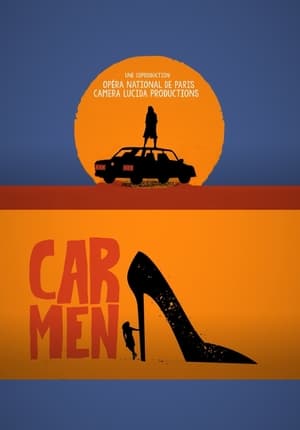 0.0
0.0Carmen - Opéra National de Paris(fr)
The first words uttered by Carmen mark one of the greatest entrances in the history of opera and express all that need be said: “Love is a rebellious bird that no one can tame…” With a devilish sway of the hips and a hint of Andalusian flair, the beautiful cigar-maker sets her sights on a soldier: Don José. Fate will do the rest.
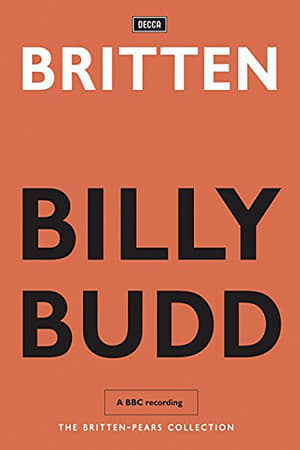 0.0
0.0Billy Budd(en)
A version of Benjamin Britten's opera based on the Melville story. Will the virtuous young sailor Billy Budd be hanged for murder?
Patrice Chéreau, Pascal Greggory, une autre solitude(fr)
A look at the entire process of creating and developing Patrice Chéreau’s third staging of "In the Solitude of Cotton Fields" by Bernard Marie Koltès with Pascal Greggory and Chéreau himself. From the first reading around the table through the first contact with the performance space, rehearsals and lighting to opening night, the entire creative process unfurls in front of our eyes. The film shows us the evolving and ongoing dialogue between Greggory and Chéreau, a dialogue full of crises and magical moments of harmony and insight via which the truth, intensity, complexity, mystery and depth of Koltès’ text gradually emerge to form an implicit bond between these two men. The film also shows Chéreau directing rehearsals for Mozart’s "Don Giovanni" in Salzburg, revealing both the unity of and profound differences between his opera and theater work.



